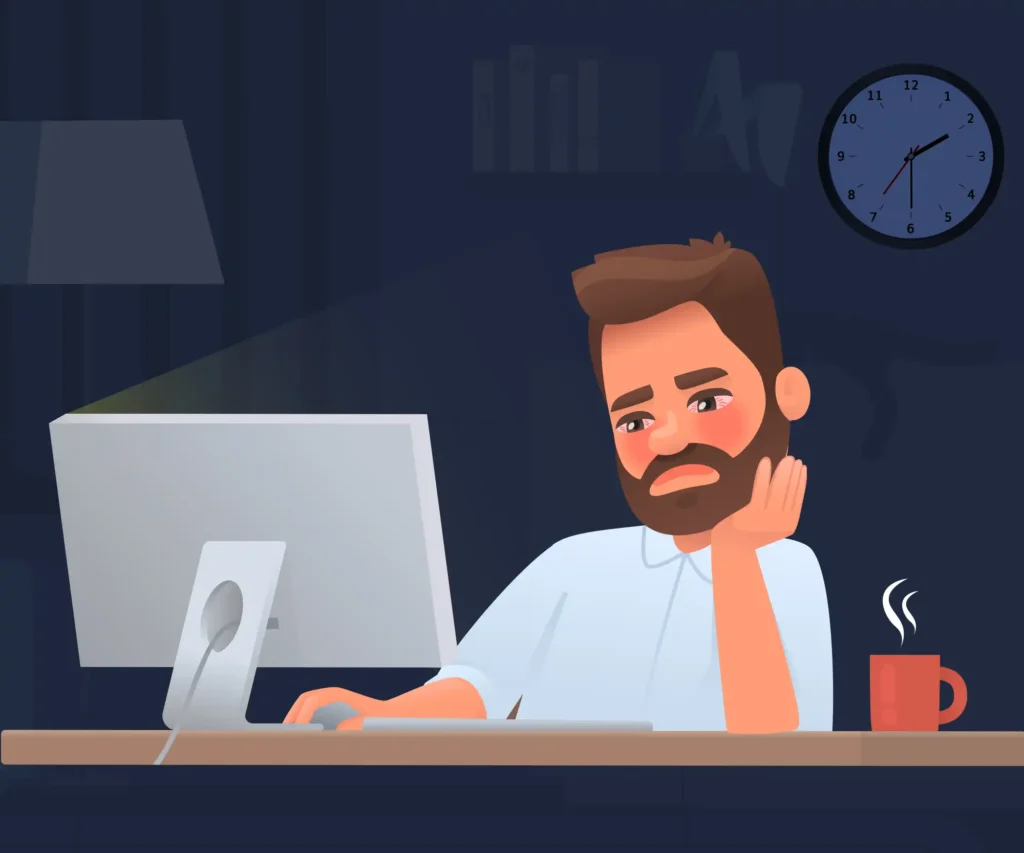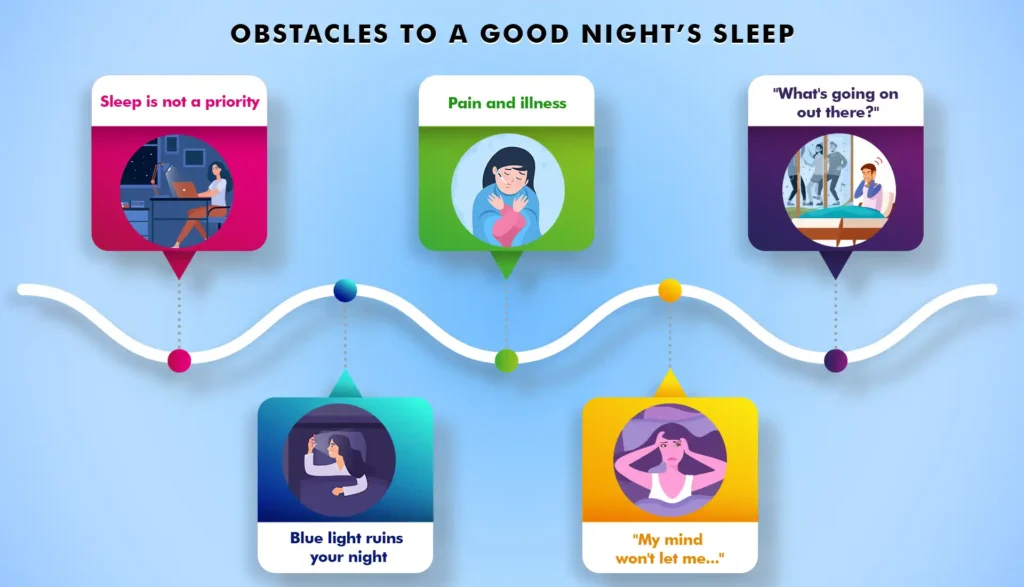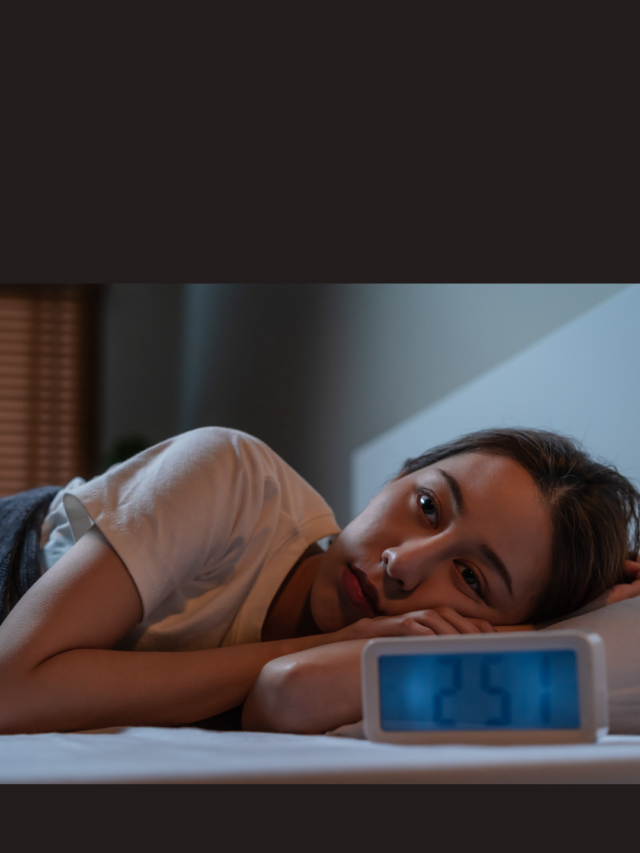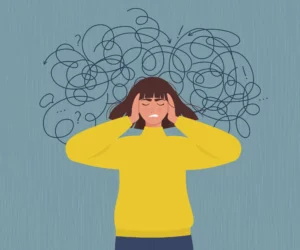
Do you wake up late in the morning, wanting nothing more than to go back to sleep? Do you hate being around people because you can’t get sleep off your mind? Of course, one reason for this could be that you’ve spent the previous night ripping the dance floor to Cardi-B or working on that perfect Instagram reel. Or perhaps a work assignment that came out of nowhere? But what if this is not a response to a one-off, known cause? What if waking up tired and feeling like sleeping all day is a recurring pattern? It probably means you’re not getting enough good quality sleep. Let’s take a look at some of the signs of sleep deprivation (familiar, weird, and wacky), the causes, and the potential long-term harm to your body and mind.
Signs of sleep deprivation
We all know about the puffy eyes and dark circles. But what about other physical and mental signs of poor sleep that we tend to ignore? Here are a few:
- Waking up tired, going back to sleep frequently before you get out of bed
- Being slow or uncoordinated in the mornings (or throughout the day. Sometimes even after multiple cups of coffee!)
- Feeling like you take a long time to process information (brain fog)
- Being cranky or irritable; feeling easily upset
- An inability to concentrate or retain focus
- ‘Microsleep’ or falling asleep unexpectedly in the day
In addition to these more noticeable symptoms, you may also consume more caffeinated drinks or sugary, fried foods. A sleep-deprived person is also likely to experience anxiety and find most situations challenging and stressful.
Before we look at what the lack of sleep can do to our body, let’s try and understand why there could be a lack of sleep in the first place.
I don’t need more than 5 hours of sleep!
Most research now agrees that all adults need a minimum of seven hours of sleep. So those five hours of rest between 2 am and 7 am? They’re not really doing the job! Sleep deprivation is when people get less than seven hours of sleep. This can be an acute condition (lack of sleep for one or two days) or a chronic one (a prolonged problem). We won’t look at insomnia here as it is an inherent inability to sleep. Although it results in severe sleep deprivation, the problem is of a different kind.
As the term ‘sleep habits’ suggests, this is all a question of habit: what time you go to bed, where you sleep, and how you fall asleep. Strangely, our bodies and minds are much quicker at creating routines than breaking them. So, for example, you might notice that after a couple of late nights, you find it difficult to fall asleep at an earlier time the following night.
What causes sleep deprivation?

There can be any number of causes for this habit of sleeping less than seven hours a night. One reason could be that our lifestyles structure our day in such a way that we sleep late and wake up early. The pandemic and ‘work from home’ have complicated this situation by removing boundaries between personal and professional time, with people working late. Of course, the arrival of varied streaming options in entertainment also encourages people to binge-watch shows, leaving household tasks later into the night.
If your day is heavily dependent on other people’s schedules or if you feel constrained by your own commitments, there’s also the element of ‘revenge bedtime procrastination’. The pithy name captures the rebellion here: you’ve spent the day catering to others; you’re now going to stay up late to do whatever you want to do!
Physical conditions (chronic pain, restless leg syndrome, illness, etc.) can make it hard to fall asleep quickly, leading to later nights. Mental health conditions also lead to poor sleep. Mood disorders, for example, cause significant changes in energy levels and affect your sleep patterns, causing you to oversleep or not sleep enough. In addition, anxiety can make it difficult to fall asleep. Someone who has experienced anxiety attacks around bedtime may then develop a fear of having a future attack when they try to sleep, creating a vicious cycle!
Finally, you have external conditions—construction work going on next door, with the drills whirring through the night, bright streetlamps just outside your window, your neighbours hosting a dance party till 3 am. Maybe even your partner’s snoring! Then there’s temperature: is your room boiling hot? Did you know you can’t fall asleep easily if your toes are cold? All these (and more) can hamper your plans to get a good snooze.
Okay, I might be sleep deprived. But why is that such a bad thing?
Did you know that sleep deprivation is one of the most widely criticised torture techniques internationally? Interrogators use bright lights and noises to prevent their subjects from falling asleep for up to 72 hours. That’s three days of no sleep!
Apart from the sheer misery of being so tired, medical studies and reports from the torture show that people undergo a frightening number of changes, including becoming paranoid, experiencing hallucinations, and having intensified pain reactions. Moreover, your immune system is affected, severely impacting your body’s healing ability. So even though the CIA isn’t interrogating you, sleep deprivation can lead to the same outcome!
You may begin to realise now that sleep deprivation is far beyond just “a bad thing.” The effects don’t stop with mere exhaustion. The human body takes a brutal hit on various levels when you repeatedly deprive yourself of sleep. Let’s look at some of those consequences now.
Adverse health effects of sleep deprivation
Physically, sleep deprivation causes fatigue, poorer immune functions, and higher stress levels. Additionally, it is essential to note that the circulating stress hormones can cause your organs to function at a much higher rate. This often results in long-term damage, internally and externally, for instance, through hair loss!
The hormones that govern hunger are also affected by lack of sleep. So you end up feeling hungrier and eating more. But your slower metabolism (due to lack of sleep) means you cannot burn calories efficiently, so you gain weight. This weight gain has its own set of health concerns. Moreover, there are other effects like inflammation, which can increase pain and even cause heart disease. Poorer REM sleep has also been correlated with a shorter lifespan!
There are a variety of effects to watch out for neurologically! In addition to irritability, anxiety, depression, and difficulty processing or retaining information, that is. Poor sleep has been correlated with lower empathy and inadequate risk assessment. Then there’s a lack of coordination (clumsiness) and slower reaction times, making activities like driving or even crossing a road very dangerous!
A lack of sleep is also linked to diseases that affect cognitive functioning like dementia and Alzheimer’s. During sleep, the brain clears itself of a protein called beta-amyloid. There is an accumulation of this protein in people with Alzheimer’s (which can also happen for other reasons).
Overall, the evidence is overwhelming: humans need good quality sleep through the night to remain healthy and functional! But if you’ve struggled with this and think getting this essential sleep sounds like an uphill battle, we may have some helpful suggestions for you in the next article.



